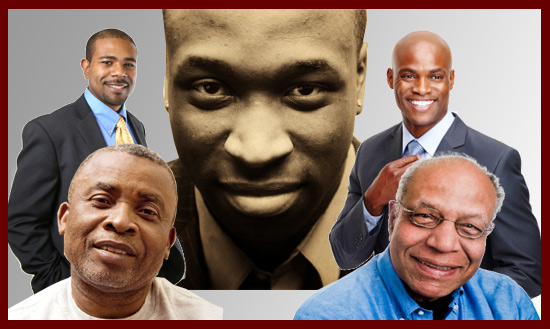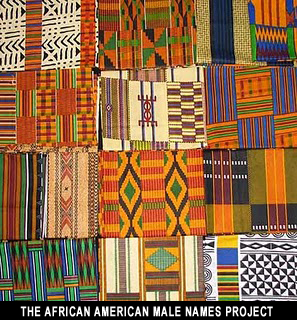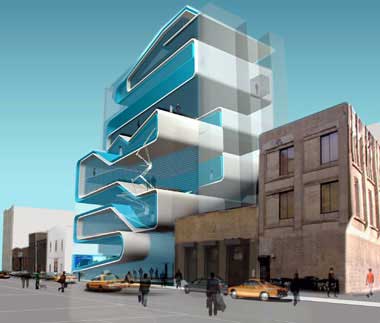Cultural Resources

MENíS DAY
CULTURAL RESOURCES
Sunday, August 7, 2011
Ralph Wheeler, Guest Cultural Resource Commentator
Attorney, civil rights activist, and storyteller, Oakland, CA
I. Historical Background
Menís Day is one of the few times when black men, young and old, as individuals and as a group, are celebrated in our country. Until recently, Menís Day programs have been an almost exclusive celebratory moment on the black church calendar. From the beginning, these days and programs have focused on black men as fathers, providers, leaders, overcomers, and Christian examples of manhood. Menís Day programs have served to encourage black men, even while they were in the throes of vicious cultural battles.
Todayís lectionary scripture for this calendar moment focuses our attention on both young black men and older black men. It reminds us how attitude, speech, character, faith, and the restraints one places on oneself can help black men encourage themselves and overcome their own trials and the worldís evils. It provides a recipe for success for young and old. Considering the difficult journey that black men and boys have faced and continue to face in this country, it is a needed recipe.
A. The Uneasy Road
The journey of the African American male in the United States of America has been a difficult one. During their almost 400-year residence in these lands, African American men have been called slaves, prisoners, sharecroppers, second-class citizens, poorly paid workers, unwanted guests, and much more. At times, they were considered property and were given no real names. So, when they could, they named themselves. At other times, they had to remind themselves that they were humanóthat they were men.1 Seldom have they been celebrated, except in the black church. This lack of public appreciation, along with constant oppression, has affected their self-image, their feelings of self-worth, and their perceptions about their race and gender.

B. When Men Know Their Names
It is important that men know their name. Names are important to all peoples, no matter what their background, culture, race, or rank in society. Names carry important information about oneís culture, country, family, heritage, race, reputation, legitimacy, identity, and spiritual nature, among other things.
Disparaging names can create severe negative consequences for an individual or an entire race of people. What one is called and what one answers to matters. It is significant that, after being stripped of their African names, most slaves in America were not given full names. Full names would have given them a past, present, and future. Names would have humanized them. It was for these reasons they were given disparaging namesónames that de-humanized them, names that reflected no civilization, and names that lacked beauty and honor.
Over the last 400 years, American black men have been called more than 100 different disparaging names: (1) boy; (2) angry; (3) arrogant; (4) nigger; (5) lazy; (6) trifling; (7) thief; (8) shiftless; (9) monkey; (10) nigga; (11) darky; (12) blackie; (13) colored; (14) negro; (15) invisible man; (16) black boy; (17) slave; (18) jim; (19) ape; (20) coon; (21) crow; (22) jim crow; (23) macaca; (24) moss head; (25) nigra, niggah, nigguh; (26) pickaninnany; (27) porch monkey; (28) sambo; (29) spade; (30) uncle tom; (31) tar baby; (32) jig a boo; (33) jungle bunny; (34) eggplant; (35) boot lip; (36) buck wheat; (37) cotton-picker; (38) dinge; (39) OG; (40) house nigger; (41) mayate; (42) nappy headed; (43) oreo; (44) spook; (45) stovepipe; (46) sub-human; (47) buck; (48) ashy; (49) stinky; (50) brownie; (51) field nigger; (52) Gar; (53) hambone; (54) ink spot; (55) june bug; (56) lawn jokey; (57) Leroy; (58) liver lips; (59) mud darkie; (60) property; (61) drug dealer; (62) pusher man; (63) ragoona; (64) redbone; (65) roach; (66) little black sambo; (67) schworzie; (68) schwarzenigger; (69) shadow; (70) babyís daddy; (71) smokey; (72) swamp donkey; (73) swamp runner; (74) toad; (75) token; (76) tootsie roll; (77) tree swinger; (78) uncle; (79) grand pa; (80) water buffalo; (81) wind chimes; (82) wool head; (83) gramps; (84) yams; (85) yen; (86) zigaboo; (87) boogie; (88) con; (89) pimp; (90) minority; (91) refugee; (92) shine; (93) fried chicken; (94) watermelon; (95) aggressive; (96) savage; (97) hostile; (98) rastus; (99) buffoon; (100) camel lips; and (101) baboon.
Sadly, over the centuries, many black men and boys have become so comfortable with these racial stereotypes that they have resorted to answering to these names and to calling themselves and other blacks by theses disparaging names. Their actions could be an attempt to soften the negative blows of the naming power of the dominate cultureóa form of self-defecating humor; or their actions could signal a more serious form of self-hatred. In either case, it is not healthy behavior.
To assist in combating the psychological, social, and negative effects of these disparaging names, the African American church invented programs like Menís Day. These programs help black men and boys relearn their names. They remind them of their glorious past, victorious present, and courageous future.
These church celebrations also teach black males that, when men know their names, the lies and evils spread by others about black male worthiness and achievements will not define their being or contribution to mankindóonly they will. When men know their names, they determine what and who they are. See the following video by Sharon Flake, which addresses black male portrayals and their fight to name themselves.
C. International Menís Day
Black men also have an opportunity to be acknowledged and honored during International Men’s Day. International Men’s Day (IMD) was initiated in 1999 in Trinidad and Tobago.2 The annual IMD celebration occurs on November 19 of each year. IMD is now celebrated “in Australia, the Caribbean, North America, Asia, Europe, Africa, and the United Nations.”3 It was first celebrated in the United States in the State of Michigan in 2008. It is now celebrated in ten different states of this country. The goal of IMD is to celebrate the positive attributes of men and boys.
In 2011, the theme for International Men’s Day is “Giving Boys The Best Possible Start in Life.”4 The focus is the health, education, family life, violence, and life challenges faced by boys and local solutions to global problems.
November 19, the day IMD is celebrated worldwide, is the anniversary date of President Abraham Lincolnís delivery of the Gettysburg Address, which honored the lives of those who died during the American Civil War. Black men fought and died defending the Union and the confederate states. Churches that do not celebrate Menís Day today may elect to celebrate it on any other day, including November 19.
II. Honoring Young Black Males
Recently, I had the pleasure of reading two separate articles, in two different newspapers from two different states, about the exemplary achievements of two different groups of high-achieving elementary-school black boys. The first article was in The Oakland Tribune, a California newspaper. The second article was in a nationally known Black newspaper, The Jackson Advocate, which is published in the state and city of my birth and childhoodóJackson, Mississippi.
These articles were unique not because the boys in the stories were so hard to find or so unusual, but because boys like them are almost never written about and because they are so seldom celebrated. There are many other black boys just like them all across America, but much more attention is given to their fallen comradesóboys who have failed themselves and boys who have been failed by society, the schools, and the Church.
In fact, reams of paper and tons of ink have been used to write about the fall of black boys and black men. Most often, those stories are filled with negative “facts,” negative “statistics,” and repeated stereotypes that depict the academic, economic, and social decline of black males. These articles are also usually topped off with negative findings about serious health care indicators for black males.
While some of these reports may contain elements of truth, other “facts” and “statistics” in some of the articles are false, misleading, or not factually based. Seldom do any of the reports focus on any of the positive achievements of black males. Honoring their achievements in America is rare.
The Oakland Tribune article highlighted 23 black elementary-school boys who made perfect scores on the 2010 California Standards Test.5 All of these students made perfect scores in either reading or mathematics. The Tribune story was published after the mother of one of the high-achieving students complained publically that she had been unable to get anyone to write about or publically acknowledge these boys. Chris Chatmon, head of the Oakland Unified School District’s privately funded African American Male Achievement initiative, was quoted in the Tribune article as saying: “The perfect score campaign . . . shows that black boys can excel, and that there are real life examples here in Oakland.”6
The Jackson Advocate article focused on 50+ male students who were honored for good grades at Bates Elementary School. Bates is part of the Jackson, Mississippi Public School System. The Jackson Advocate indicated: “Male students in first through fifth grade who have made the honor roll at least one time this year were honored and were part of a special pinning ceremony.”7 My nephew, Joshua Hamilton, a fifth grader at Bates Elementary School, was one of those students.
Bates’s principal, Mitchell Shears was quoted as saying: “. . . the [Men of Honor] program is designed to give young men hope and to let the community see that there are positive males, especially black males, who are going to school and doing well academically.”8 Forty-eight of the 50 plus male students honored at Bates were African American male students.
Honors of this type go a long way in stopping and keeping young black males from internalizing negative perceptions about their race and gender. Well-planned Menís Day programs at black churches are other ways of assisting with that effort. These programs will also help boys and young men develop and maintain the attributes reflected in todayís lectionary scripture.
Some other ways to honor young black males and usher them toward healthy adulthood are:
- Award them scholarships to college and graduate schools
- Take them through rites of passage programs
- Hold round-table discussions with them about issues of concern to them
- Organize chess and checker tournaments with them
- Have a bowling night out for boys
- Conduct mathematics and computer camps for boys
- Give boys books and have a reading marathon
- Sponsor a sports night/day for men and boys
- Hold a men and boys only night at the movies
- Organize a camping trip
III. Special Communities of Men and Boys
Menís Day program planners should never forget the special communities of boys and men that exist within and without the church. They too need to be celebrated, honored, and reached. They too need to be encouraged, reminded of their real names, and helped to become self-encouragers, modelers of good work, men of faith, love, and endurance, and men of integrity and sound speech.
Some of these men and boys are: disabled; house-bound; homeless; imprisoned; housed in juvenile detention centers; living in centers as wards of the state; in drug rehabilitation facilities; estranged from their families; neglected veterans of foreign wars; boys suffering from being bullied by other boys; men who have lost their homes due to foreclosures; men who are unemployed; and boys and young men whose fathers are not present in their lives. All of these special communities of men and boys should be remembered on Menís Day. They should be included in church Menís Day programs and in the planning of such programs. There are many ways to achieve this, including but not limited to: (a) holding Menís Day programs in fully accessible facilities; (b) visiting sick and house-bound men and boys; (c) conducting feeding and clothing drives for the homeless; (d) giving musical presentations in prisons, juvenile detention centers, and veterans facilities; (e) sponsoring anti-violence sessions aimed at addressing bullying; and(f) organizing neighborhood festivals that reach and include participation by all segments of the community.
IV. Songs That Speak to the Moment
We Are Men of Jesus Christ
We are men of Jesus Christ,
weíve come to serve the Lord
in the strength of God.
Come, O men of Jesus Christ,
come servants of the Lord.
Come and take your stand.
1. The battle rages for the sons of men,
and He has made us the sons of God
that we may fight now in His battle plan,
for He is building the kingdom of God,
ruling the nations with sword and rod.
He is the Word of God.
2. We struggle not against mere flesh and blood,
but strive with dark dominions above.
Our weapons molded not by human hands
but by the powír of Christ Jesus, we stand
holding the sword of the Spirit in hand.
He is the Word of God.
3. To Christ our King we offer all our lives,
a fragrant offíring and sacrifice.
To live is Christ, to die is gain for us.
Triumphant praises to God we sing.
Rejoice in victíry with Christ, the King.
He is the Word of God.
Come and take your stand.
Come and take your stand.
Serve the Word of God.9
This Day
Give us this day our daily bread.
You said You would supply all my needs according to Your riches.
I have but to ask and I shall receive.
To go from here and share this love You gave to me, to show
someone whoís lost and help them find their way, the way to
truth and faith so they can be free like me, free like me.
Lord, we need Your Love. Lord, we need Your peace.
Lord, we need Your joy this day. Thank you for this day.
Thank You for this day. Lord, we thank you for this day.10
Lord, Help Me to Hold Out
Lord, help me to hold out, Lord, Help me to hold out
Lord, help me to hold out, Lord, help me to hold out,
until my change comes.11
V. Nurturing Healthy Black Men
Many black men are not healthy eaters. Menís Day celebrations can help change that. Black churches and Menís Day program planners should use this opportunity to help make changes in black male eating habits. Each Sunday morning, all across America, many attendants at black churches fill their stomachs with some of the unhealthiest food. Following Sunday morning services they eat cake, cookies, and doughnuts. And they wash it down with coffee, hot chocolate, punch, sweet tea, and sodas. The food at special church programs, such as Men's Day, often is no better. Fried chicken, barbecued pork ribs, macaroni and cheese, candied yams, fried fish, potato salad, greens with fat back, and ham hocks are often on the same menu. These are frequently accompanied by peach cobbler, sweet potato pie, cake, and ice cream! The dangers of too little exercise and too much salt, sugar, starches, fatty foods, and fried foods should be highlighted. Church menus should be permanently changed to exclude these men killers.
Menís Day planners and churches can help change bad eating habits among their male parishioners and community residents. Information about diabetes, high blood pressure, strokes, and colon cancer can be disseminated among the men of the church and community. A healthy eating movement can start at your church this year and it can start with men on Menís Day.
VI. Random Acts of Kindness (Older Men Impacting Younger Men)12
Random acts of kindness by total strangers or anonymous individuals can be extremely infectious and uplifting. They fertilize the soul and heart of the givers and they feed the spirit of the receivers. The first time I experienced one of these random acts was several years ago when I was driving from Oakland to San Francisco.
When I approached the toll booth at the foot of the Bay Bridge, I handed the Toll-Taker my toll fare, but she refused it. She informed me the driver in the car ahead of me had paid my fare. The individual did not know me and I did not know the individual. To say the least, I was stunned and very moved by his random act of kindness. Since then I have performed similar acts of kindness.
The Plan: Each young-adult-aged or older male of the church, as a Menís Day activity, should do something good for a younger male. The givers should not reveal themselves. Stay anonymous.
The Purpose: Helping to fulfill the mission of the church and to uplift men and boys and the black community.
Ideas for a Random Acts of Kindness Program:
- Identify a needy family within the church or community and send the father an anonymous gift.
- Have a healthy dinner delivered to a man in a facility or shelter.
- Make sandwiches and soup and distribute them to homeless men.
- Send a care package to an elder or a shut-in man.
- Have flowers delivered to someone who is not expecting them.
- Buy movie tickets, ball game tickets, or concert tickets and have them delivered to a boys club as a gift to young boys.
- Provide bags of fruit to the sports teams at the nearest school.
- Send someone a good book that you love to read or that you know they would love to read.
- Send someone a card a week for four weeks.
- Send someone a gift subscription to a great magazine.
- Send a soldier a care package.
- Empty your closets of all good, old clothes. Have them cleaned and folded and give them to homeless men.
- Send a music CD to a younger or older man.
- Send a movie DVD to a younger or older man.
- Identify a student who is about to graduate high school and send him an anonymous check for college.
- Buy and mail a one-month bus pass to an older or younger man.
VII. A Prayer for the Brothers
Litanies and corporate prayers can be used to highlight the importance of Menís Day, center the congregation, and create a spirit of unity among the worshipers. The following prayer litany is offered as an example. It can be used as is or modified, or Menís Day program designers may develop their own.
HALLOWED BE THY NAME
Blessed Savior, Rock of Ages shine on us.
Rushing waters, quiet stream shine on us.
Lowest valley, highest peak shine on us.
Soaring eagle, mighty warrior shine on us.
Prince of Peace, our relief shine on us.
Jehovah-Jirah, Jehovah-Nisei shine on us.
God of Abraham, God of Isaac shine on us.
God of Martin, God of Malcolm shine on us.
Hallowed be Thy name! Hallowed be Thy name! Hallowed be Thy name! Amen.13
VIII. Cultural Aids and Resources for Men's Day
 |
 |
During these difficult times when church budgets are stretched to the maximum and there are many competing needs in communities and congregations, church program planners, including Menís Day planners, can tap the cultural resources of their communities to help them meet their churchís programmatic needs. The following are examples of places where cultural resources are available to local churches:
- Libraries
- Museums
- Chambers of commerce
- Colleges and universities
- Public and private recreational facilities
- Theaters and movie theaters
- Storytelling/Toastmaster organizations
- Historic preservation societies
- Governmental agencies
- Tourist boards and travel associations
- Foundations
- The internet
- Other churches and religious institutions
- Fraternal organizations
- Advocacy and Civil Rights organizations
- Private philanthropic agencies
All of these institutions have programs and human and other resources that can be tapped to insure that churches have successful Menís Day programs. Many of them will be more than willing to offer suggestions, provide program facilities, conduct guided tours of their exhibits and facilities, offer video equipment, and/or host spoken word readings for church groups.
Notes
1. Wiggins, William H., “Men’s Day Cultural Resources,” Sunday, July 27, 2008. http://www.theafricanamericanlectionary.org/PopupCulturalAid.asp?LRID=36
2. http://en.wiKipedia.org/wiki/international_Menís_Day, p.1 accessed 27 February 2011
3. Ibid., p. 4.
4. Ibid., p. 10.
5. Murphy, Kathy, “School stands behind student-100 percent: Third-grader one of 23 African American boys in district to earn perfect score on part of Standards Test.” Oakland Tribune, vol. 137, No. 46, Thursday, April 7, 2011, pp. 1 and 7.
6. Ibid., p. 7.
7. “50+ Male Students Recognized for Good Grades at Bates Elementary,” Jackson Advocate, vol. 73, No. 27, April 21Ė27, 2011, p. 1.
8. Ibid.
9. Berlucchi, James. “We Are Men of Jesus Christ,” http://wquercus.com/men/Men_of_Jesus_Christ.htm
10. Hawkins, Edwin. “This Day.” African American Heritage Hymnal. Chicago, IL: GIA Publications, 2001. #443
11. Cleveland, James. “Lord, Help Me to Hold Out.” African American Heritage Hymnal. #446
12. The “Random Acts of Kindness Program” was modeled after the 2011 “Random Acts of Kindness & Senseless Acts of Beauty” project that was conceived and implemented by The Membership and Evangelism Commission of St. Paul A.M.E. Church of Berkeley, California, Rev. Leslie R. White, Pastor.
13. Wheeler, Ralph. “Hallowed Be Thy Name,” excerpted from “Conflicts of Courage: Poems from the Southern Front,” an unpublished book of poems by Ralph Wheeler.



